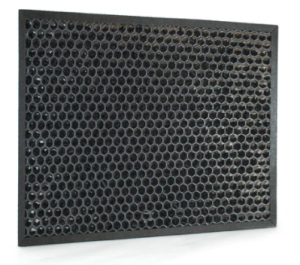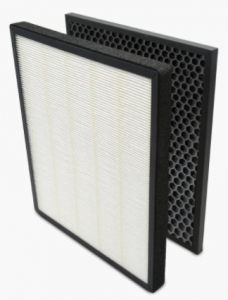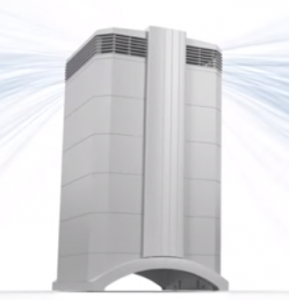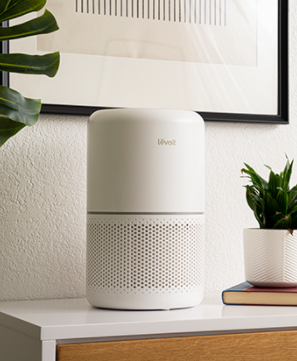Do Air Purifiers Remove Chemicals? The short answer is, yes they do.
According to the American Lung Association, indoor air can be more polluted than the air outdoors. For instance, the simple task of clearing your sink using unclogging chemicals exposes you to sodium hydroxide, which is highly toxic.
The best air purifiers in Canada remove all the contaminants in the air and absorb the odours, giving you the fresh air you deserve. Dust, pollen, dust mites, smoke, bacteria, and even viruses in some cases are no match for these powerful units.
But chemicals are also a major part of air pollutants, thus bringing us back to the day’s question.
Do Air Purifiers Remove Chemicals?
Air purifiers possess different capabilities, depending on the kind of filter they have. Therefore, your air purifier’s ability to remove chemicals depends on its specifications and features.
For the air purifier to get rid of chemicals, it needs to have a filter that is capable of trapping the tiny chemical particles. Let’s look at the two best air filters for gaseous chemical removal:
Activated carbon filters

Granular activated carbon filters are specifically made to absorb and remove all the volatile organic compounds (VOCs) and chemicals from your appliances, as well as any fumes and odours.
The filters are made using activated carbon generated from charcoal using a unique heating process.
The heat dries out the carbon, filling it with microscopic cracks. When gases and chemicals pass through the air filter, these tiny cracks trap them and retain them in the filter, thus purifying the air.
However, for the filter to absorb high amounts of toxic chemicals, the air has to pass through it slowly. So, avoid putting the air purifier at high fan speeds when you want to eliminate chemicals.
Besides, you do not have to worry about carbon exposure. Activated carbon is safe and harmless. It is also commonly used in medicine, especially in pumping out the stomach in cases of poison ingestion.
When it comes to the ability of your filter to absorb chemicals, the carbon content will guide you. The more the carbon quantity, the more effective it is.
Filters with less than 1/5 of a pound do not last for long. However, heavy-duty air purifiers have filters that contain as high as 25 pounds of carbon, with a lifetime of more than five years.
HEPA (High-Efficiency Particulate Absorbing) filter

HEPA filters can trap particles as small as 0.3 microns with an efficiency of over 99%. The air is purified through the filter material, and there is no emission of any harmful by-products.
Tiny airborne pollutants like fine dust, pollen, and dust mites are removed by HEPA (or True HEPA) filters. While these do not directly remove chemicals, they help to keep other disease-causing substances at bay.
HyperHEPA filters by IQAir go a step further to trap particles as tiny as 0.1 microns in diameter. Take a look below:
How do I Choose the Best Air Purifier to Remove Chemicals?
If you are looking for an air purifier that will help you remove chemicals from the air, here are some pointers:
Type of filter
Ensure that your air purifier has a filter that can handle the purification of chemicals. As we have seen, an activated carbon filter is the best option when it comes to trapping chemicals.
Some air purifier filters are a hybrid of both HEPA and activated carbon filters. The HEPA filters sieve all the tiny particles while activated carbon filters remove chemicals and absorb odours.
Filter life
As we have noted, different activated carbon filters have different lifespans depending on the amount of carbon content in the filter. The higher the carbon content, the longer the filtration life.
On the other hand, the lifetime of HEPA filters depends on the amount and size of the particles you want to remove.
So, always, ensure that your filters do not stay in the air purifier for too long for improved efficiency and better protection.
Coverage area
Different air filters can effectively purify the air in varying room sizes under normal working conditions.
The capacity of the air filter depends on the brand and model. So, ensure that you read the manufactures specifications and get the best air purifier for the size of your house or room.
The other specifications you might want to look at are the air change rate (ACH) and Clean Air Delivery Rate (CADR).

Conclusion
Do air purifiers remove chemicals? Yes. Air purifiers remove most chemicals in the air if they have the right filter for the job. For the removal of chemicals, ensure that your air purifier has an activated carbon filter.
Our review of the best air purifiers for chemical sensitivity sheds more light on which models will serve you best.
Other things to consider are the filter life and the recommended maximum coverage area. With these, you can rest assured that your air purifier will remove all the pollutants, including gaseous chemicals and odours.

